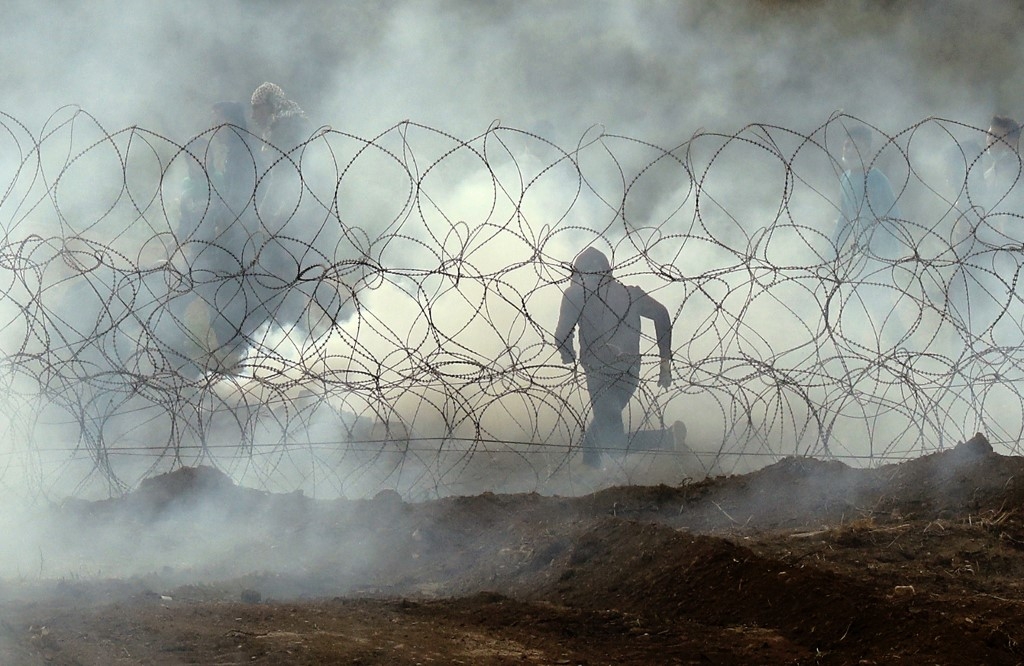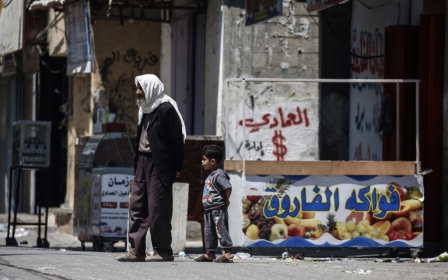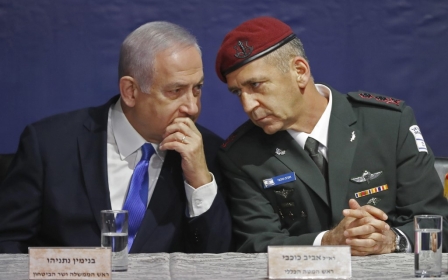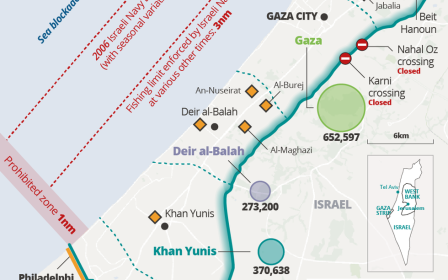Will Israel's next government take a new approach on Gaza?

The Gaza Strip was notably present in the last Israeli election, as competing parties proposed different visions for its security and political situation.
Amid deep loathing of the policy of Prime Minister Benjamin Netanyahu’s right-wing government towards the enclave, a narrow victory was eked out by the Blue and White alliance, led by Israeli military leaders. This could signify the start of a new policy towards Gaza, where Israel has failed to reach an enduring calm.
Reoccupying Gaza
Since March 2018, Palestinians have been organising peaceful protests along the Israel-Gaza fence, prompting Israeli politicians to broach the possibility of another war on Gaza. Such a conflict could lead to Israel reoccupying the territory.
Israeli leaders understand that this would not be an easy process. The war would be bloody and fierce, with thousands of casualties on both sides, and no guarantee that Israel would ultimately achieve its objectives. A full reoccupation of Gaza would entail Israel using all of its military strength and personnel to control the coastal territory. Israelis who adhere to this “uprooting” option believe that recurrent operations against Gaza are useless, serving only to compound existing tensions.
New MEE newsletter: Jerusalem Dispatch
Sign up to get the latest insights and analysis on Israel-Palestine, alongside Turkey Unpacked and other MEE newsletters
This has allowed Israel to control Palestinians and prevent them from having sovereignty over their natural resources
Advocates of this choice believe that despite the massive human, economic and military losses that Israel would suffer, future gains would include decimating Hamas and sending a strong warning to other enemies in the region, such as Hezbollah, Syria and Iran.
Yet, any news about the death of an Israeli soldier is a nightmare for Israel - and such an operation could come with a huge number of casualties, given that Hamas has well-developed military capabilities.
In addition, the Israelis who call for a full reoccupation of Gaza know that Israel would then have to assume the massive responsibility for the economic situation and living conditions of the two million Palestinians residing there. This would mean that Israel would have to take on a serious, long-term commitment to Gaza.
A temporary Israeli occupation, followed by withdrawal, could be a way to avoid some of these costs - although this could also lead to gradually escalating operations in Gaza.
Full separation
Since Israel’s withdrawal from Gaza in 2005, Israel has maintained control over water, electricity, infrastructure, crossings, medical treatment, exports/imports, and many other areas of daily life. This has allowed Israel to control Palestinians and prevent them from having sovereignty over their natural resources.
Before the two rounds of elections held this year, there was talk of delinking Gaza from Israel by creating a Gaza-Sinai state, or at the least, building up a sea connection with Cyprus.
Yet, some Israelis consider such projects to be a sort of oxygen tube, allowing Hamas to compensate for the destroyed Gaza-Egypt tunnels, which facilitated the smuggling of goods and weapons.
In addition, the possibility of a new, hostile political entity rising up in Gaza is a terrible prospect for Israel. Such an entity may have seaports and lanes linking the territory with the outside world, contributing to Israel being surrounded by unfriendly states.
While various security considerations could hinder proposals to separate Gaza from Israel, the US “deal of the century” reportedly envisions a future Palestinian state built in the Gaza Strip and a smaller share of the occupied West Bank.
Return of the PA
With the country’s politics dominated by the right wing for the past decade, Israeli leaders have tried to maintain intra-Palestinian divisions, from which it has benefited. On the political, economic and security levels, Israel has attempted to deepen the rift. Could the results of the latest election change this?
Some left-wing and moderate voices have called for a return of the Palestinian Authority (PA) to the Gaza Strip, which could lead to the creation of a new government in Gaza that would necessarily be taken seriously by Tel Aviv.
Indeed, there is no easy solution to the crisis that Israel has created in Gaza. Whenever the new government is formed, exploring these options will likely be near the top of its agenda.
The views expressed in this article belong to the author and do not necessarily reflect the editorial policy of Middle East Eye.
Middle East Eye delivers independent and unrivalled coverage and analysis of the Middle East, North Africa and beyond. To learn more about republishing this content and the associated fees, please fill out this form. More about MEE can be found here.







